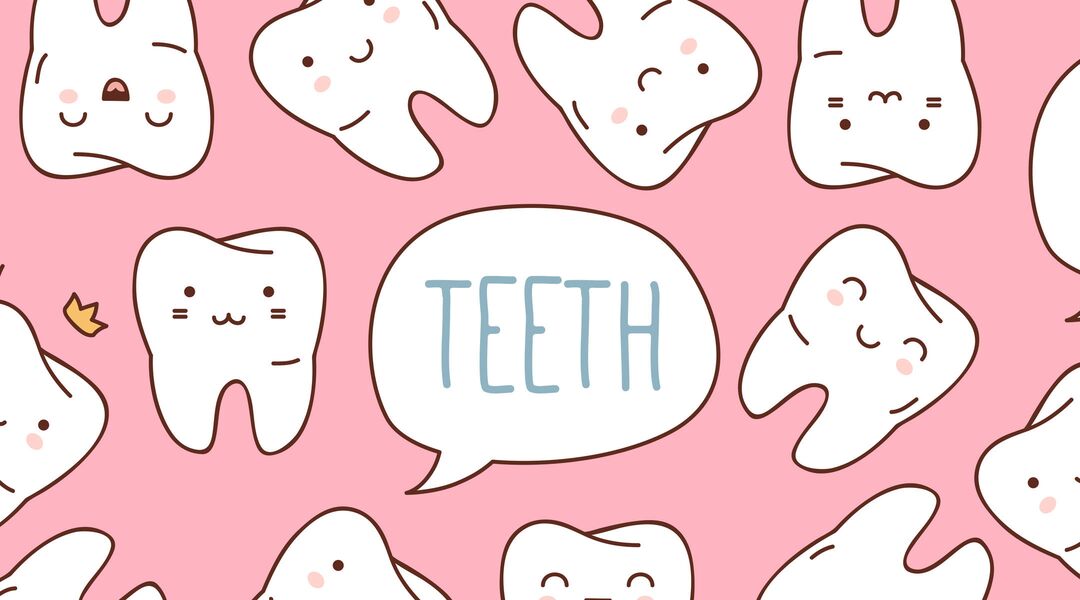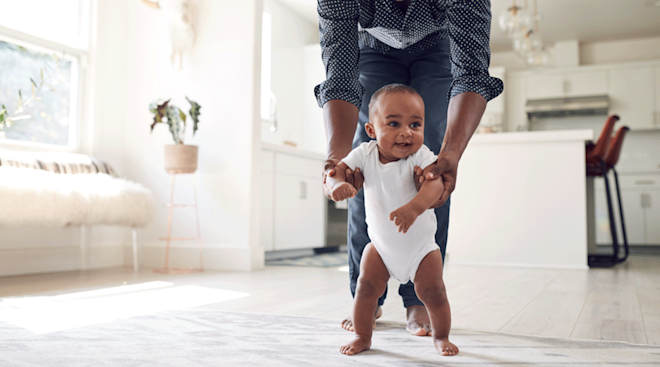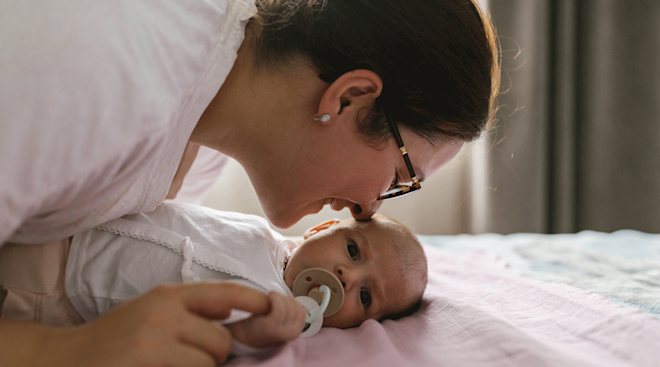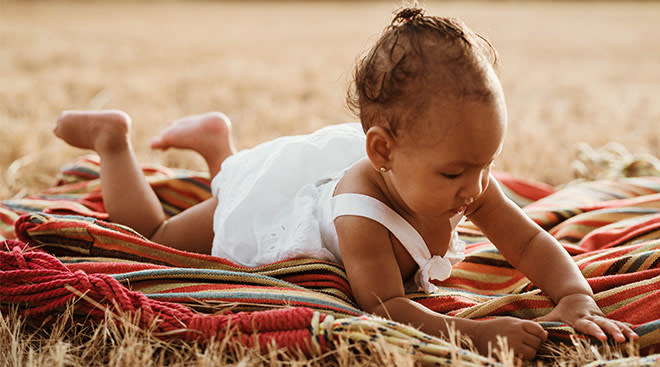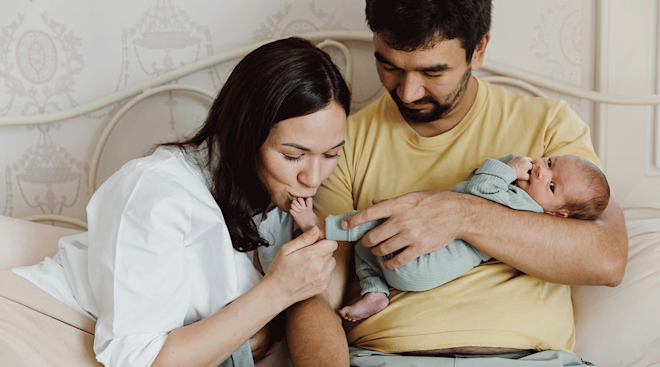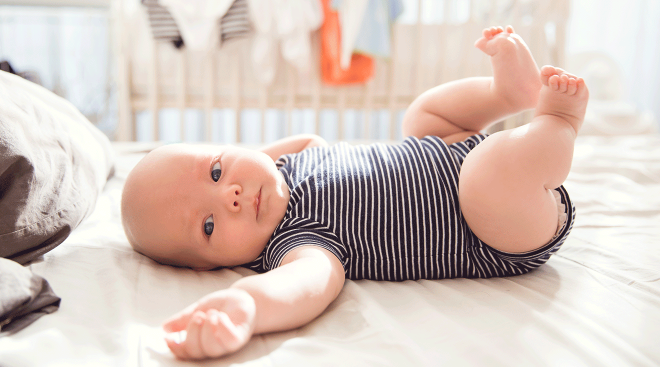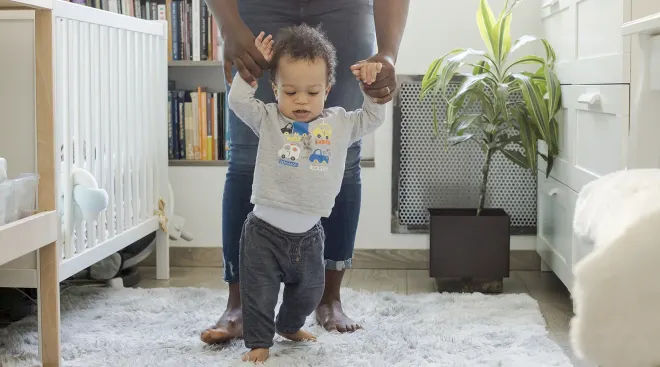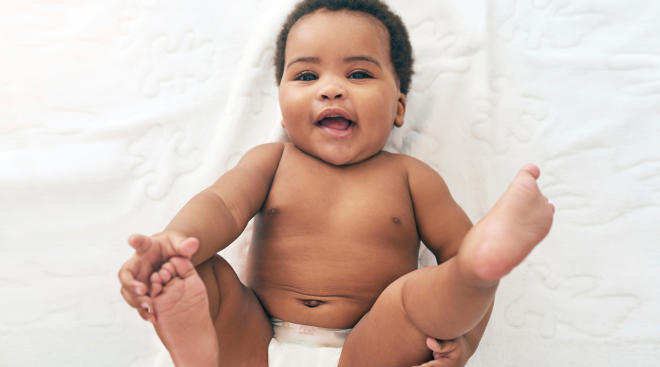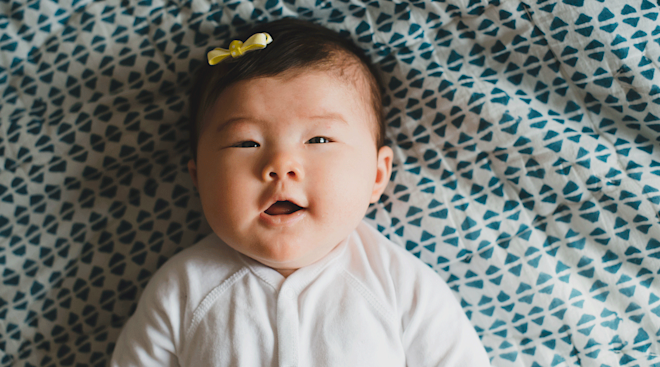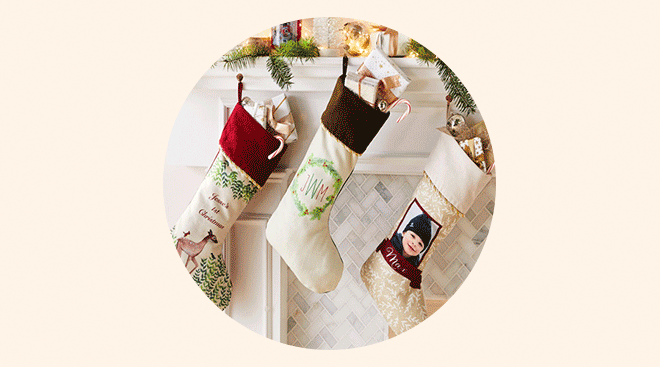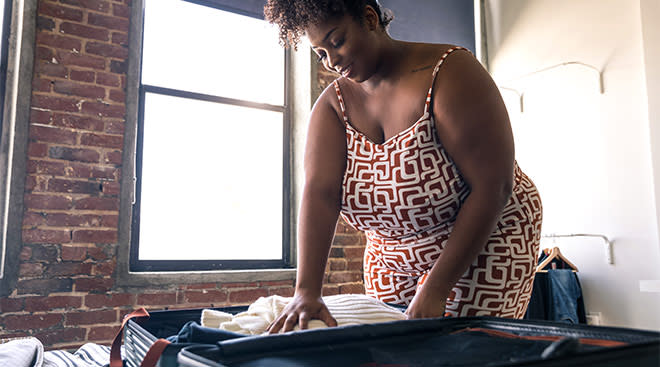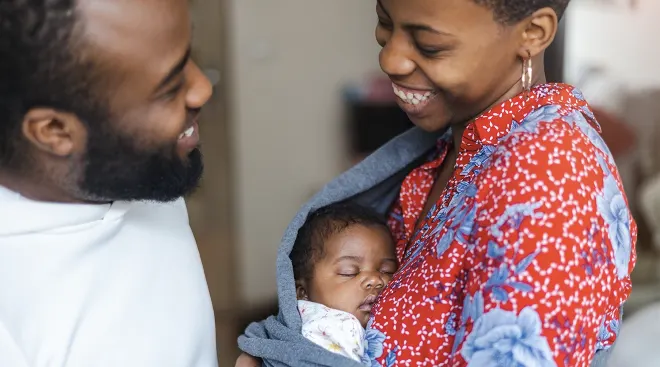Is It Normal for Baby to Be Born With Teeth?
A baby born with teeth might sound like something from a horror movie, but it does happen (and it’s generally much less scary than it sounds). Natal teeth, as they’re called, are rare, occurring in about one in every 2,000 to 3,000 births, according to the National Institutes of Health. But if your newborn happens to enter the world with tiny teeth poking through his gums, you’ll want to know the possible risks natal teeth can pose and what your best course of action is moving forward.
In most cases, natal teeth are just a child’s normal baby teeth that have erupted by the time she’s born, says Erik Scheifele, DMD, division chief of oral health at Children’s National Health System. In rare cases (less than 10 percent), natal teeth are actually extras, known as supernumerary teeth, that develop in addition to the regular number of teeth. Note that natal teeth, which are present at birth, are different from neonatal teeth, which erupt within 30 days after birth. (Babies usually get their baby teeth when they’re 6 to 10 months old.)
If you peer into the mouth of a baby born with teeth, you’re most likely to see natal teeth on the lower front gum, usually in pairs, Scheifele says. Less frequently spotted are the top front teeth, lower canines and molars, and the upper canines and molars are even more uncommon.
“Natal teeth may look like normal baby teeth, but they’re usually smaller and may be yellowish in color,” Scheifele says. Natal teeth often have poor tooth structure with little to no root and are wiggly, although it’s possible for baby to be born with a nearly or fully developed set of healthy teeth too.
While there are certain factors that can contribute to whether a baby is born with teeth, the exact reason for the eruption of natal teeth is unknown, says Hyewon Lee, DMD, MPH, a pediatric dentist and fellow at the DentaQuest Institute in Westborough, Massachusetts.
There are two suspected root causes of natal teeth, Lee says: tooth germ cells (cells that eventually form a tooth) that are positioned close to the surface of the gum, and hereditary factors. The timing of when a child’s baby teeth come in depends on his genetic blueprint—so if one or both of his parents were very late or very early teethers, there’s a good chance baby will also be a late or early teether. According to one study, 15 percent of babies with natal teeth had parents, siblings or close relatives who presented with the same condition.
Other times, natal teeth may be associated with certain medical conditions. Natal molars, in particular, have been linked to Pfieffer syndrome (a genetic disorder) and Langerhans cell histiocytosis (a white blood cell disorder). Other rare medical conditions that have been associated with natal teeth include:
- Cleft lip and palate
- Ellis-van Creveld syndrome
- Jadassohn-Lewandowsky syndrome
- Hallerman-Streiff syndrome
- Pierre-Robin sequence
- Sotos syndrome
- Wiedemann-Rautenstrauch syndrome
If baby happens to be born with teeth, don’t panic—it’s generally not a cause for concern. That said, natal teeth can lead to some potential problems, so alert your pediatrician if you encounter or are worried about any of the following:
• Difficulty breastfeeding. Natal teeth can cause baby some discomfort while suckling, Scheifele says, and some infants struggle or refuse to nurse due to the pain.
• Tongue ulceration. Natal teeth sometimes rub against the underside of baby’s tongue, causing a ulcer to form. Known as Riga-Fede disease, this can also be painful and discourage baby from feeding.
• Injury to mom’s nipple. According to Scheifele, baby’s teeth can potentially cut into a mother’s nipples as she breastfeeds (ouch).
• Choking hazard. If the natal teeth are really loose, there’s a risk of baby inhaling a tooth that gets dislodged.
Since natal teeth are typically just normal baby teeth coming in early, as long as they aren’t interfering with breastfeeding or causing other problems, you don’t need to take any special action: They should be kept in place until they naturally fall out around the age of 6, Lee says.
There are some cases, though, where natal teeth call for treatment. If baby is born with extremely loose teeth, they’ll likely be removed to prevent your child from inhaling and choking on one of them. If your little one develops a Riga-Fede ulcer, your pediatric dentist can smooth out the rough edges or place a bonding resin over the sharp points to protect baby’s tongue, Scheifele says—but if that doesn’t work, the natal teeth may have to be removed.
Otherwise, if baby’s teeth aren’t bothering him (or you), simply care for them as you would regular baby teeth: Brush them after feedings, Lee says, and visit your child’s dentist early on to learn what you can do to keep your child’s teeth clean and healthy.
Updated January 2018
Plus, more from The Bump:
Navigate forward to interact with the calendar and select a date. Press the question mark key to get the keyboard shortcuts for changing dates.

































